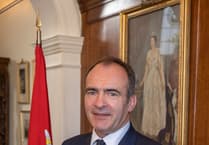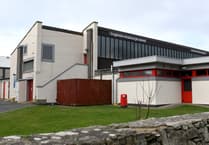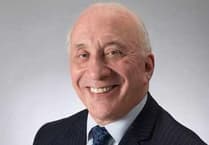This column was first published in the Isle of Man Examiner of April 5, 2022.
Modern parliaments are not supposed to meet behind closed doors but in the Isle of Man it happens almost every week.
Here Tynwald refuses to reveal even the subjects that are discussed when members gather for regular private briefings.
Such old-fashioned secrecy seems astonishing in the 21st century, yet it is the official position.
In a recent response to a Freedom of Information request, Tynwald President Laurence Skelly blocked the release of any information about members’ briefings on the grounds that they are all confidential.
The sessions in the Barrool Suite of the legislative buildings have become so well established in recent years that the room is known as Tynwald’s ‘fourth chamber’.
MHKs and MLCs receive presentations and ask questions on a wide range of issues, including controversial subjects like gas prices.
They also talk about forthcoming items of business in Tynwald and its branches.
These are not formal sittings but nevertheless are routine meetings in private of the entire national parliament.
The Isle of Man may be the only Westminster-style democracy to embrace this shady practice – it would certainly never happen in larger ones such as the United Kingdom.
The parliament, remember, is meant to be the open part of the democratic structure, unlike the separate executive (government) which can work under the cover of confidentiality.
I have long been concerned that the culture of closed briefings undermines the health and integrity of the island’s political process.
On March 2 this year I made the following freedom of information submission to the Clerk of Tynwald’s Office:
‘Since September 23, 2021 [the start of the new administration] how many briefings have been held for Tynwald members?
‘For each briefing please supply the date, location, subject matter, who/what organisation hosted the event, and the status of the briefing (e.g. private, confidential etc).
‘For each briefing please confirm whether or not all the information given to members has also been placed in the public domain. If so, when and where? If not, why not?’
A reasonable request, you might think, given that the subject of the inquiry is our elected representatives discussing matters of public interest.
The response from the Tynwald office was short and startling:
‘We are unable to provide the information you have requested because all of it is absolutely exempt information.
‘The exemption in section 22 (1) (a) (i) of the Freedom of Information Act 2015 is required in order to avoid an infringement of the privileges of Tynwald namely that Members are entitled to confidentiality in briefing.’
Accompanying the response was a copy of a section 22 certificate, signed by the President, confirming the application of the exemption in this case.
In other words, all briefings are confidential and the right to receive information in confidence is one of the special privileges given to members to enable them to do their job.
Anything that infringes upon Tynwald privilege is absolutely exempt from disclosure under the FoI Act. The ‘absolutely’ means a refusal cannot be challenged on the basis of the public interest.
A large and obvious question is left hanging here.
Why on earth are all of these briefings deemed to be confidential in the first place?
What is being said that is too sensitive for the public to hear?
There is nothing wrong with briefings as such, and they can be an effective way of keeping members informed. In very exceptional circumstances confidentiality might be justified, but there are no good arguments for it being the norm.
So why, then, has Tynwald made such a habit of conversing in a closed room?
The answer is that it suits the politicians. It provides a safe environment for ministers to unveil new proposals, gauge backbench reaction and spot potential points of controversy so they are prepared for any public debate.
Backbenchers get exclusive access to government information so they can appear knowledgeable in the eyes of their constituents. They can also ask embarrassing questions without being shown up.
But political convenience is no excuse for compromising the independence and reputation of our parliament.
Wrapping members in a cloak of confidentiality makes them all insiders, like lawmakers in a one-party state. It inhibits their ability to question and challenge, and by treating everyone as part of government it weakens the role of parliament.
When Tynwald sittings take place members seem to have rehearsed issues in advance, and to be in possession of much more information than is available to the public.
This reinforces the impression of a cosy clique talking amongst themselves.
Secrecy breeds conspiracy theories.
The existence of private briefings invites suspicion – that they could be abused, for example, to stitch-up subsequent debates. Such perceptions damage public confidence in democratic institutions.
Now that members briefings have become so embedded in the culture of Tynwald it is time to put them on a proper footing. There need to be clear and stringent criteria to identify the rare few that really ought to be confidential. The rest should be opened up to the public without further ado.
Our Island Plan, the policy document approved overwhelmingly by Tynwald in February this year, lists ‘accountability’ amongst its requirements for good government. But the public cannot judge what it cannot see – there can be no accountability without openness and transparency.
All MHKs and MLCs will tell you that they believe in those principles. I wonder how many will now step forward to apply them to the issue of their own private briefings?




